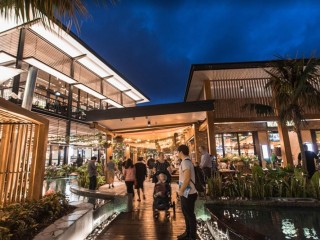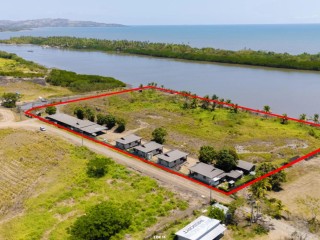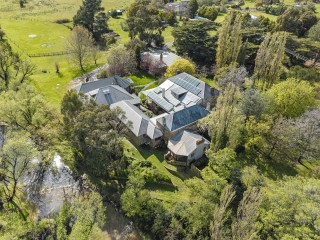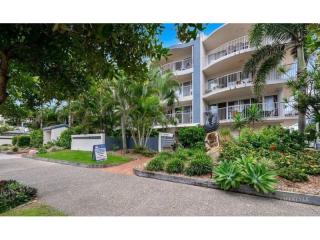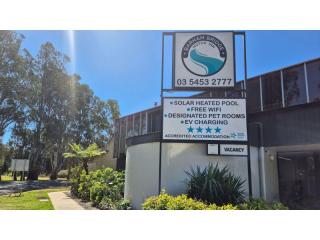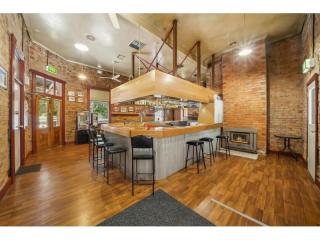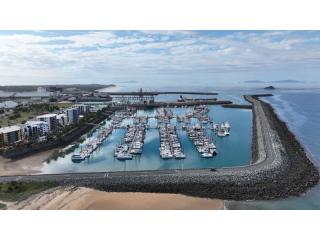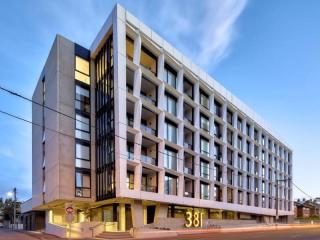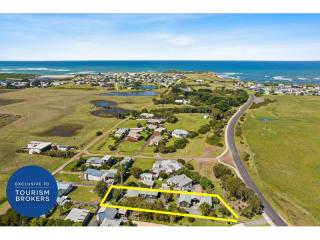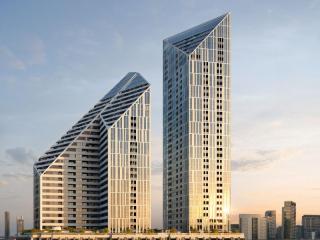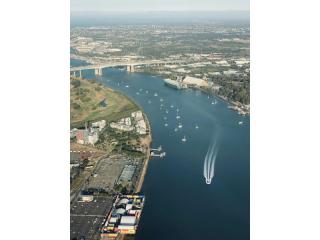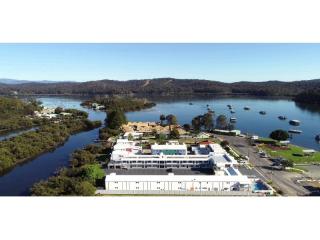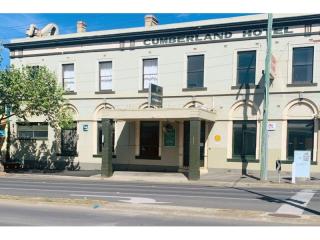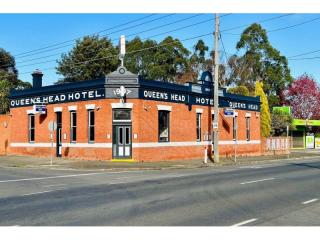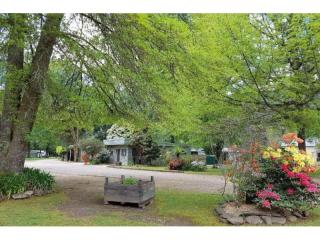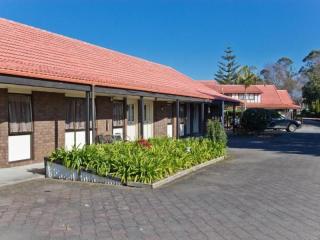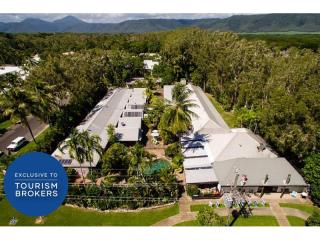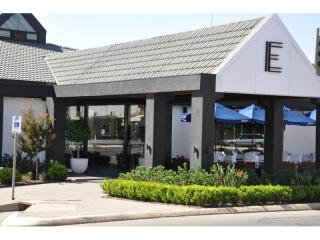The Management and Letting Rights (MLR) industry on the Sunshine Coast is undergoing a significant transformation, driven by rapidly rising real estate prices and declining business multipliers.
Traditionally dominated by ‘mum and dad’ operators, the industry is now seeing a shift toward syndicates as the cost of units in popular beachside areas approaches seven figures. This shift is prompting stakeholders to rethink traditional business models, with trends like decoupling (the separation of the manager’s unit from the MLR business) gaining traction. As these economic pressures reshape the landscape, industry experts weigh in on the challenges and opportunities facing the Sunshine Coast’s MLR market, including the impact on sales, the role of financing, and the evolving expectations of buyers and vendors.

Tony Rossiter, a leading accountant from Holmans, explains that decoupling is becoming increasingly common in smaller resorts with “20 or 30 units in the complex and fewer than 20 in the letting pool”. He notes that the high cost of real estate attached to a business is making these ventures less profitable, leading to fewer buyers compared to 12 to 18 months ago. “Various economic considerations, including interest rates, inflation, and overall economic uncertainty, are affecting the MLR industry on the Sunshine Coast and beyond,” Rossiter says.

Michael Philpott, a veteran with 40 years in the real estate industry and owner of Management Rights Sales, echoes this sentiment. He notes that the days when business multipliers of six were standard on the Sunshine Coast are now behind us. “Currently, there are an average of 74 properties on the market in the Sunshine Coast Management Rights For Sale, with the average multiplier at 3.95 and the average return at 10.52 percent,” Philpott explains. Although market activity has picked up recently, some banks are still hesitant to finance properties with returns below $150,000.
Philpott emphasises that the MLR business is fundamentally about jobs, as people purchase these rights to offer essential services. He says: “As unemployment rises and the market stabilises, more ‘Baby Boomers’ are likely to enter the market.” However, he cautions that, unlike in the past when property growth was less significant, current trends suggest that multipliers will need to adjust to align with market expectations. Real estate values are now outpacing business growth, making it necessary for business multipliers to decline, sometimes by at least one multiple.
He also highlights concerns with smaller complexes that are not renewing agreements, which diminishes the security and value of these businesses. Additionally, bodies corporate are becoming more price-sensitive, often questioning the value-for-money services being provided. In some cases, services are not being charged at market rates, leading to conflicts.
“The key is finding the balance,” Philpott advises. He suggests that creating more time for managers to communicate using systems and technology is crucial. Lower terms reduce security and increase the risk profile for many businesses, making it harder to secure financing and longer loan terms, which in turn drives down multipliers for those complexes.
Philpott also shares recent successes in the market. His business recently put Noosa Sound Resort under contract through Richard O’Connell and achieved recent sales in Mooloolaba at a 4.7 multiple with Meagan Monk. Altitude at Montville was sold by Tony Johnson at a multiple of 4.15.
“There are significant opportunities with multipliers in the 3s, more in the 4s, and a smaller number in the 5s,” he states. “I recently closed two sales at Hervey Bay with multiples of 3.49 and 3.15, each offering significant value-added opportunities.”
He adds that a growing trend of owner-occupiers taking over units, especially in complexes with larger three-bedroom or well positioned two-bedroom units, is putting pressure on these properties. “Pure tourism complexes are growing in popularity and typically deter owner-occupiers,” Philpott notes.
In conclusion, Philpott observes that well-organised managers with effective systems are decoupling units from businesses to sell them separately. Others are eliminating set office hours and reception duties by adopting keyless entry systems. “The value and need for a full real estate agent’s license are increasing as owners seek a comprehensive, one-stop service from managers that includes leasing, sales, and general management,” he concludes.

As the industry grapples with these shifts, Chenoa Daniel from ResortBrokers offers an optimistic view of the Sunshine Coast’s MLR market. Having represented ResortBrokers on the Sunshine Coast since 2020, Daniel believes the area remains one of the best places in Australia to buy an MLR business due to its “solid” fundamentals. “We’re primarily a short-let market, and as long as there’s surf, sand, and sunshine, the tourists will keep coming,” she says.
“Businesses are turning great profits, although we’ve seen some normalisation in trade following the post-COVID-19 highs.”
Daniel notes that many business owners who weathered the COVID storm and benefited from the post-COVID surge are now feeling fatigued and ready to sell. “They’re selling off the back of very healthy balance sheets thanks to last year’s strong trade.
As a result, there’s a lot of stock hitting the market. To give you an idea, I have more deals under contract going into FY25 than I had in all FY24, which was a bumper year.
“Good assets are selling at the right price,” she emphasises. “But the key word is ‘right price’. Sellers who price their businesses correctly are finding buyers. Last financial year, I settled 10 MLR deals worth over $37 million across the Sunshine Coast, including in Noosa Heads, Mooloolaba, Coolum, Maroochydore, Bokarina, Parrearra, and even Bribie Island, where businesses are traditionally tightly held.”
Daniel stresses that businesses priced unrealistically simply aren’t selling. “With 13 interest rate hikes, inflation still peaking, and the substantial capital growth in Sunshine Coast real estate that has driven up the price of managers’ units, sellers can’t expect both a super-high multiplier for their business and a super-high price for their unit. That’s not the market we’re in right now. If your agent is still talking in terms of multipliers rather than return on investment, you need to question whether they’re the right agent for you.”
She adds that many businesses remain unlisted because sellers have unrealistic expectations. “I don’t like turning down business. I want to help sellers and sell their businesses, but unrealistic price expectations waste everyone’s time, especially the seller’s.”
Daniel assures that vendors who price their businesses correctly will always find a buyer, regardless of the business’s size. “Last year, I sold businesses across the price spectrum, from $600,000 to over $10 million,” she says. “This included Oceans Mooloolaba Beach, which sold for $11.2 million and set a new record for an MLR business on the Sunshine Coast. I’m proud of that achievement but equally happy to take on smaller businesses. I currently have two great businesses on my books, Stringybark Place and Banksia Buderim, two adjoining schemes with 147 keys in total being sold in one line for just over $3 million.”
Regarding new buyers, Daniel notes an increase in syndicates at the higher end of the market and more younger families at the lower end. “Couples with young families are attracted by the flexibility of working from home and being more present for their children. An MLR business offers that, especially here on the Sunshine Coast, where schemes are more boutique and notably smaller than those on the Gold Coast.”

Robert Collins, Director of Management Rights Sales at RAS 360, acknowledges the challenges but remains confident in the long-term rewards of the MLR industry. He points out that while sales have slowed and multipliers have decreased, the Sunshine Coast remains a lucrative market. “Where else can you buy a business that offers a CPI increase to your basic salary every year and a return on investment of 13 to 14 percent?” Collins asks. “If you buy an industrial shed, you’re lucky to get seven or eight percent. Buy a restaurant or café, and you’re fortunate if you stay in business.”
He notes that more buyers and sellers are considering decoupling, even though some MLR traditionalists, whom he refers to as “Puritans,” argue that it undermines the concept of a resident manager. “The ‘Puritans’ aren’t the ones who have to put up their own money,” he points out. “A million dollars or more for a manager’s unit, which doesn’t generate income, is a significant amount of money.”
He questions the necessity of a manager living onsite, suggesting that the role doesn’t require constant presence. “You’re not a policeman,” Collins says. “If someone causes a disturbance, they should call the police. If there’s a parking issue, it’s a body corporate matter. If someone locks themselves out, the manager can assist if available, but otherwise, call a locksmith. There’s this nanny-state mentality in MLR that managers must be there all the time, but they’re not servants.”
Collins recalls that sales have slowed and multipliers have decreased, but he remains confident that boom times will return to the Sunshine Coast, as they did in the immediate post-COVID-19 period. “I remember in 2008 when we experienced a severe downturn after companies like BreakFree and S8 decided not to pay the high multiples that were common back then. I went from selling 40 MLRs a year to just 18.” He notes that multipliers dropped by a full point overnight, forcing managers to stay eight to 10 years to recoup their investment. “Because of the costs involved in buying and selling now, people are staying longer. Twenty years ago, the average tenure for a manager was two years and eight months. Managers would build up their businesses, sell them, and move on to larger complexes. That doesn’t happen as often anymore.”
Despite the current challenges, Collins is confident that a boom is ahead. RAS 360 has two salespeople on the Sunshine Coast: Rossina Gall and Geoff Hatchman.
Among the properties RAS 360 is marketing is the Alex Seaside Resort at Alexandra Headland, which offers a net profit of $391,091 and caretaking remuneration of $117,159. The business is priced at $2.105 million, with the two-bedroom, two-bathroom manager’s unit priced at $790,000, bringing the total to $2.895 million. RAS 360 is also marketing the Coolum Beach Resort, which generates a net profit of over $200,000 annually. It offers new managers the choice of living in a beautifully renovated two-bedroom apartment, complete with white plantation shutters and a gourmet kitchen with granite benchtops, or living off-site and renting out the unit themselves. The business is priced at $631,000, with a multiplier of 3.1.

Providing a legal perspective, Michael Kleinschmidt from Bugden Allen Graham notes a significant slowdown in Sunshine Coast MLR transactions since the post-COVID-19 peak. “It’s now a buyer’s market, and buyers are becoming more selective about the premiums they’re willing to pay,” he explains. Kleinschmidt points out that the high value of the manager’s residence is a major challenge, as the remuneration often doesn’t justify purchasing such an expensive property to live in. He also highlights growing concerns over changes to residential tenancies legislation, with owners increasingly asking their letting agents how these changes will impact them and their returns. As for recent by-law changes regarding smoking, parking/towing, and pets, Kleinschmidt mentions that these issues haven’t yet fully resonated. “Everyone’s waiting to see how larger hubs like Brisbane and the Gold Coast handle these changes first. There’s a suspicion that the lack of clarity around enforcement might be the reason for the slow uptake,” he adds.

Reflecting on the current state of transactions, Paul Grant from Mike Phipps Finance also observes that they are “certainly not as frequent as they were 18 months ago”.
“We’re still seeing a healthy volume of transactions, but it’s not at the post-COVID-19 frenzy when there was a surge in the number of sales and sky-high prices,” he says. Grant notes that people are now paying more attention to the overall price and return on investment rather than just focusing on earnings multiples. “Many potential sellers are considering decoupling before going to market and many buyers are looking at these assets favourably.
“This trend has been noticeable around the Noosa area for a few years and is now spreading further south along the coast.”

Adding to the legal insights, Damian Quinn from Simpson Quinn shares that his firm has been involved in decoupling some MLR businesses with “mixed success.” He explains that the success of decoupling often depends on the body corporate committee and highlights the significant challenges posed by rising real estate prices when potential buyers seek loans. “If a buyer wants to borrow $2 million, the critical question is how much of that amount will generate income? When only $750,000 is for the business and the rest is for the unit, the equation becomes more difficult,” he notes. “This often results in challenges with securing funding.” Quinn emphasises the need to re-educate bodies corporate about the flexibility in managing caretaking and letting rights. “If someone can effectively manage these rights, they don’t necessarily have to live onsite,” he says.
“There are already dozens of complexes doing this successfully, and we hope to see more adopt this approach.”
He adds that decoupling could significantly improve the bottom line for smaller businesses. “At larger complexes, the real estate component is less critical, and in many cases, there’s already no requirement for the manager to live onsite.”

Balancing these insights with a note of caution, Peter Brewer from accountants pbbConsult acknowledges that while MLR sales have slowed on the coast, “well-managed, well-located properties will continue to do well”. However, he expresses reservations about decoupling, arguing that resident managers are the heart of the MLR industry. Brewer believes that decoupling can quickly erode a business’s point of difference, emphasising the need for careful consideration before pursuing this option.

Alex McCowan, a Director-Valuer from Accom Valuers, agrees that decoupling can be problematic but notes that it’s a trend that is continuing to shape the market. He mentions that MLR sales on the Sunshine Coast were quieter at the beginning of the year but have picked up significantly over the last four months. “In 2022, we saw a flurry of transactions on the Sunshine Coast as many people cashed in on the post-COVID-19 boom. We’re now probably back to pre-COVID sales levels.” He also points out that there’s much more scrutiny now on what buyers want and how much they’re willing to pay. “The best sale in recent times was Oceans Mooloolaba, which sold in March last year. It was generating a $1.7 million net profit and sold on a 6.2 multiplier. That level of income could probably attract a similar price today, but the vast majority of sales over the last couple of years have been in the $400,000 to $800,000 net profit range, with transactions generally happening at multiples of 5.3 to 5.5.” McCowan adds that in the last three or four months, five or six MLR businesses have sold, all with a unit attached. However, he notes that businesses with a net profit under $200,000 and a unit attached are proving harder to sell. “It’s not impossible, but it’s tough. The multiples with the unit could be as low as two to three times because real estate values have risen so much.” He explains that many operators have doubled the price of their units, so they’re willing to lower the business multiplier.

Offering a veteran manager’s perspective, Winston Hall, who has spent his entire career in hospitality and now manages four large MLR businesses on the Sunshine Coast with his investment partners at Seabreeze Resorts, notes the growing trend of decoupling. Hall believes that this trend, driven by rising real estate prices, could significantly alter the MLR industry, leading to fewer ‘mum and dad’ operators and more syndicates buying smaller businesses and integrating them into existing operations nearby. Despite the economic challenges, Hall remains optimistic about the future of tourism and MLR on the Sunshine Coast, saying that the region has always weathered economic challenges well.

Chris Cameron from the Offmarket Group adds that the MLR market on the Sunshine Coast has become “real soft real fast”. He attributes this to global economic turmoil, including wars, rising interest rates, and inflation, which has many investors feeling uneasy. Cameron notes that while there’s plenty of stock available, there aren’t enough buyers, making it a waiting game. Despite this, he mentions that Offmarket Group still has half a dozen MLR properties for sale on the Sunshine Coast, showing that opportunities do exist for those willing to navigate the current market conditions. He says: “The old money in this MLR game is sitting on the sidelines, waiting to see how the market unfolds. These conditions see many of the opportunities now being priced to meet the market making the next six months a good time to re-engage your broker.”

Meanwhile, Peter Sagner from CRE Brokers is currently marketing two properties as a package at Mt Coolum—White Shells and Breeze on the Boardwalk. The package contains two manager’s units with a combined value of $2.07 million, with the business priced at $3.16 million. There are 144 units in total, 57 in the letting pool, and a combined body corporate salary of $304,502. Sagner says that while many prospective buyers now prefer not to pay a heavy real estate price for a unit to enter management rights, “anything with a net profit of more than $500,000 (a large complex with a secure income) is extremely saleable, and you still can potentially achieve multipliers up to six times. Long term MLRs with net income of more than $600,000 have seen multipliers reach 6.5.

Finally, Wayne Stoll from Think Management Rights explains that rising real estate prices are pushing many prospective buyers out of the MLR industry on the Sunshine Coast. “We used to see semi-retired ‘mum and dad’ buyers who had sold their farm or business looking for a lifestyle change in MLR. However, that’s becoming less common because they’re not getting the return on their investment when they have to purchase a unit in the complex,” Stoll says. He adds that well-managed permanent letting buildings with a good net return, a solid letting pool, and the 25-year accommodation module are still in high demand and tend to sell quickly. “I sold the Sippy Downs University complex about 12 months ago for a multiplier well over six, totalling $8.2 million.” However, Stoll notes that the industry has changed. “Not long ago, an income of $200,000 was highly sought after, but now the ratio between real estate and business value is nearly even, and sometimes the real estate is worth more than the business. This isn’t sustainable as an investment from the banks’ perspective, and the only way some sellers can move forward is to split the unit from the business and sell them separately.” He acknowledges that this isn’t always possible, as body corporates may not allow it. “MLR businesses are still selling, and we have two under contract, but it’s tougher all around. Even banks are taking longer to process transactions. What used to be a 60-day settlement now often takes more than 120 days.”
In summary, the Sunshine Coast MLR industry is in a state of flux, with rising real estate prices and declining multipliers reshaping the market. While challenges abound, those who adapt to the changing landscape and price their businesses realistically are still finding success.
Related Content
Sunshine Coast Management Rights All Management Rights Latest Industry News

